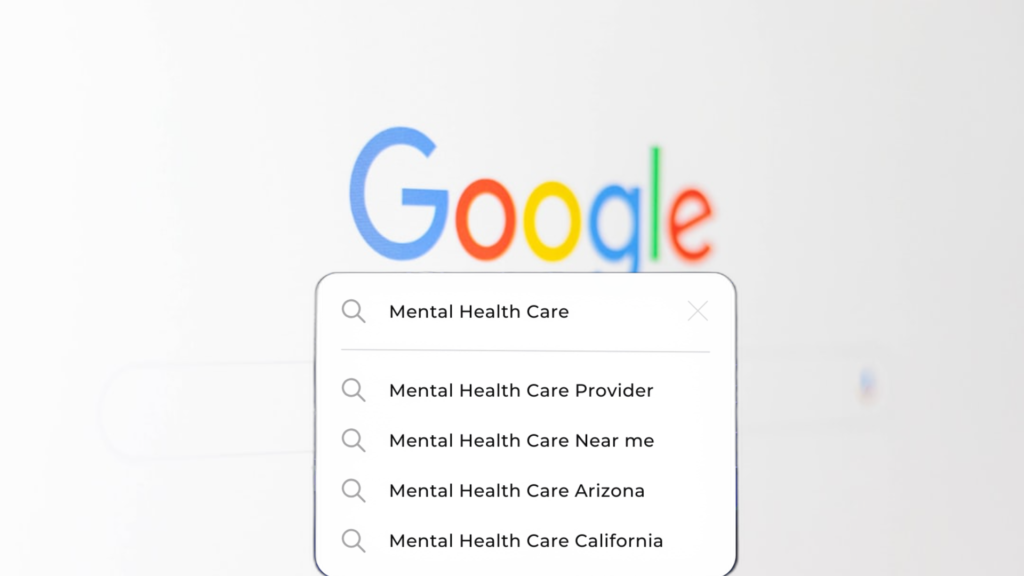Mental health is an essential aspect of our overall well-being, and selecting the right mental health specialist is crucial to receive the care and support you need. Whether you’re dealing with anxiety, depression, medication management, or any other mental health issue, finding the right mental health provider can make all the difference in your recovery journey. However, it can be overwhelming to choose a mental health specialist, especially if you’re not sure where to start. This blog aims to provide you with helpful tips and guidance for choosing the right mental health specialist to address your specific needs. By following these tips, you can increase your chances of finding a mental health provider who offers effective treatment and support. The first step is to determine what type of mental health provider is best suited to your needs. Mental health providers can include psychiatrists, psychiatric mental health nurse practitioners, psychiatric physician assistants, psychologists, therapists, and each has their unique expertise and training. Psychiatrist A psychiatrist is a medical doctor specializing in diagnosing, treating, and preventing mental illnesses and emotional disorders. They can prescribe medications and alternative treatments for mental health disorders. However, psychiatrists have very limited availability, and appointment sessions are usually very short. They can provide limited therapy, but most don’t. If they do, it is very little therapy and mostly medication management. Psychiatric Mental Health Nurse Practitioner Mental health issues can be very challenging, but with the help of a psychiatric-mental health nurse practitioner, individuals can receive the care they need to manage their conditions. A Psychiatric Mental Health Nurse Practitioner (PMHNP) specializes in assessing, diagnosing, and treating mental health disorders. Their role entails providing individual therapy, administering medication, and developing care plans to support patients in managing their mental health concerns. They also educate patients about mental health issues, provide support and counseling, and advocate for patients’ needs. At Journey Psyche, we are proud to have Stacy Lyons PMHNP & LPC on our team. Stacy is a highly accomplished and experienced professional who is dual certified in both psychiatry and therapy. She has over 15 years of experience in mental health, which has given her extensive knowledge of psychiatric medication. Stacy’s exceptional ability to understand and empathize with her patients surpasses many psychiatrists, making her one of the most sought-after providers for patients on Zocdoc and WebMD in Arizona and California. Her talk therapy skills are highly regarded in the industry and have brought tremendous relief and positive change to numerous individuals. Stacy was awarded APA 2023 as a Top Psychiatric Nurse Practitioner Phoenix, AZ, a testament to her expertise and dedication to her field. We consider ourselves extremely lucky to have Stacy as a valuable member of our team at Journey Psych. With her expertise and compassionate approach, Stacy has helped countless individuals overcome their mental health challenges, and we are confident that she will continue to do so for many years to come. Psychiatric Physician Assistant A psychiatric physician assistants play a vital role in providing comprehensive patient care under the supervision of a physician. They typically hold a master’s degree from an accredited PA program and are licensed to practice medicine. A psychiatric physician assistant can have several important responsibilities while taking care of a patient, whether as an inpatient or an outpatient, depending on their mental or behavioral health problem. These responsibilities can range from screening and admitting patients to performing mental health assessments, managing medication or therapies, and ordering specific tests and evaluations. At Journey Psyche, we are fortunate to have one of the Top Psychiatric Physician Assistants, Desanne Gonsalves, who is a Top Provider Zocdoc California. She has 11 years of experience in psychopharmacology, psychotherapy, and motivational interviewing. She has helped treat several behavioral issues that often accompany patients with mental illness, such as ADHD, anxiety, bipolar disorder, self-harm, eating disorders, dissociative disorders, medication management, and more. Desanne has the ability to empathize with patients and understand how they feel, as she truly listens to what they have to say. This ability to listen goes hand in hand with empathy and is the only means of truly understanding someone. Desanne consults daily with Psychiatrist Daniel Duel and together, they review charts, discuss patient treatment, manage medications, and provide guidance in all areas of mental health. Psychologist A psychologist is a mental health professional who specializes in studying human behavior, thoughts, and emotions. Their primary role is to help individuals develop coping strategies to manage mental health concerns, but they do not prescribe medication. Instead, they work collaboratively with other medical professionals, such as psychiatrists, psychiatric nurse practitioners, and psychiatric physician assistants, to provide holistic care to individuals with mental health concerns. Psychologists can help people with a wide variety of problems, from chronic conditions that interfere with their lives or physical health, to short-term problems like feeling overwhelmed by a new job or grieving the death of a family member. Licensed Clinical Social Worker A Licensed Clinical Social Worker (LCSW) is another type of mental health professional trained to diagnose and treat mental, behavioral, and emotional disorders. They provide individual, family, and group therapy to help individuals cope with and manage mental health concerns like depression, anxiety, substance abuse, and trauma. LCSWs also provide counseling and support to help individuals manage life transitions, such as divorce, loss, or job changes. They work in various settings, including hospitals, clinics, schools, and private practices, and collaborate with other healthcare professionals to provide comprehensive care. To become an LCSW, individuals must have a master’s degree in social work, complete supervised clinical experience, and pass licensing exams in their respective states. They may also have additional specialized training in trauma-informed care, cognitive-behavioral therapy, and dialectical behavior therapy. Licensed Professional Counselor A Licensed Professional Counselor (LPC) is another type of mental health professional trained to diagnose and treat mental, emotional, and behavioral disorders. LPCs provide individual, group, and family therapy to help individuals manage their mental health concerns and develop coping strategies. They also provide counseling










